Introduction

“Are you sure you want to do this?” grumbled my wife for the umpteenth time ever since I had asked her to join me as a pillion on a 650km ride from Goa to Mumbai.
“Don’t worry, we’ll manage”, I tried assuring her while tightening the straps of the Rynox Drystack saddle bags hurriedly under the Classic 350’s grab rail. It was 9 am and we were running about two hours late from our planned schedule, thanks to her resolute demand to do a quick photo session on the beach before we left for Mumbai. The pristine Agonda beach in South Goa, where we sojourned, made for a dreamy backdrop for pictures in the morning.

“You look way too excited”, she muttered, observing my enthusiasm and haste to start the ride.
My spouse’s apathy and lack of experience with motorcycles and rides made her apprehension about spending a whole day on the saddle quite valid. But then I was hell-bent to test my long-termer, the new Classic 350’s suitability to go long distances with two people and some luggage on board. After comprehensively riding the bike in the city and on solo long rides — areas it truly shone in, this was one important side of the bike I wanted to examine, and my hopes were high.
After a short tussle about her intermittent photography urges and my reluctance to join in, we left our resort, on the winding and narrow roads, lined by tall palm trees and quaint Portuguese-style houses.
The goods

The engine of the Classic performed with an unhindered zeal, despite carrying all the weight, which was approximately 160kg including me, the pillion, and the luggage. The motorcycle thumped its way with almost as much vigour as it does with a solo rider aboard. Climbing reasonably steep inclines and exiting spiritedly out of corners wasn’t a lethargic affair. What added to the experience was the smoothness and refinement of this new engine which I have talked about on multiple occasions before. It remains vibe-free for the most part with just slight tingling creeping in the bars at and above 90kmph.
The Classic and its engine remained unfazed even on the highway. The journey to the 100kmph mark was decently quick and effortless for the motorcycle. However, anything beyond that felt like a bit of a stretch, which isn’t the case while riding solo.

The handling was another aspect that continued to impress on this ride. Now, it is not a nimble and extremely agile motorcycle to take corners on. However, the poise and composure with which it tips in and sticks to the line around bends while riding alone were retained even while carrying additional weight. Unfortunately, my spouse’s fear of high lean angles restricted me from going fast around corners for roughly the initial 100km. But once she started gaining confidence in me, and more in the bike, I took the liberty to flow fast through the twisties. And the Classic didn’t show any sign of being more difficult to steer or lazier to tip in.
What else impressed me were the brakes. Now, regardless of the weight on board, the Classic doesn’t have the best brakes in the first place; you need to squeeze the front lever a little hard to get a strong bite. But things didn’t get worse with the additional payload and the Classic continued to deliver decent bite from the front. The rear showed some amount of fading but that didn’t bother me much since I use the front brake most of the time.

Surprisingly, the amount of fuel the Classic guzzled was almost the same as on my previous long ride. The mileage of around 32-33kmpl (a range of nearly 429km) was just around a kilometre or two lesser than the solo Goa trip I did in December last year. And that’s commendable, considering the additional load the bike was carrying this time.
The bads

About three hours into the ride and we started getting a bit uncomfortable due to the rapidly soaring temperatures. This called for a break to gulp down some sugarcane juice just before we entered Kolhapur. While the juice and cold water helped in beating the heat, what they couldn’t heal was our aching backsides due to the extremely soft seat. My spouse is used to sitting on my KTM 200 Duke which has extremely hard seats. So, for the initial two-three hours, she kept praising the cushy feel of the Classic’s seat. However, as I had expected, resting our behinds continuously turned into an agonising affair after about 150km and the pain only kept on increasing over time, leading to more frequent breaks.

This isn’t as big a problem for the rider; the front seat tapers towards the fuel tank and has a scooped design. So, the rider can keep shifting back and forth thereby changing the area of the backside in contact with the seat. However, the pillion can’t experiment much with the seating position courtesy of the flat and rectangular rear seat design. The space is not a problem though. Despite the saddlebag straps occupying some area of the pillion seat, the passenger with a lean physique still had sufficient space to settle properly.

Another major grouse was the ride quality. I have already mentioned in my previous reports that the Classic’s ride has a little firmness but not to the extent of being an annoyance. It feels plush for the most part when ridden solo or with a pillion weighing nearly 65-70kg. Shallow potholes, minor ruts and small rumblers are ironed out cleanly.
Well, it was a different story on this ride as these small surface imperfections kept sending a hard jolt, even if I went over them at speeds of around 30-40kmph. It felt even stiffer every time I was caught by tall bumps, deeps potholes, or broken roads. This was mostly due to the suspension being past its sweet operating spot as the payload was much more than when I ride alone. Hence, with the preload being at stock setting, the rear didn’t feel as absorbent and even kept bottoming out on some occasions. Fed up with the consistent thrashing by the rear suspension, the missus started getting off the seat every time she saw us approaching an undulation.
What's next?

The most important question that arises after this ride is – will I do this again? The answer is yes and no.
I won’t tour with a pillion with the existing seat. It has to be replaced by the touring seat available in Royal Enfield’s official accessory catalogue. With a denser foam and a different design, it might be more comfortable than the stock ones. But to what extent, we don’t know that yet. So yes, I will do this again only after the touring seat is installed. I’ll also try adding some preload to the rear suspension to check if the ride gets more comfortable with the additional weight.

Distance covered: 650km
Odometer: 8,300km
Fuel efficiency: 32-33kmpl
Photography by Kaustubh Gandhi
Gallery
1/11
Royal Enfield Classic 350 Left Side View
Double Tap to Zoom











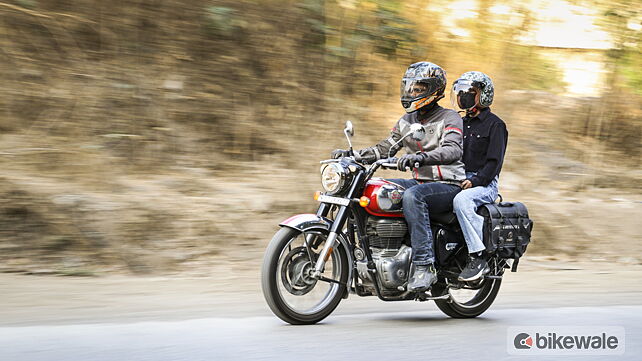








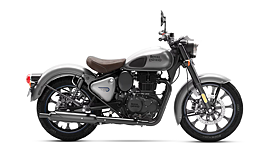
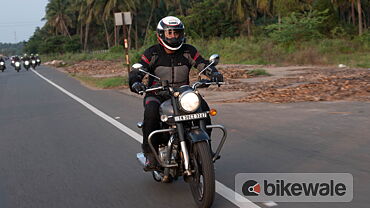
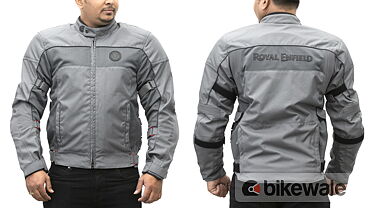
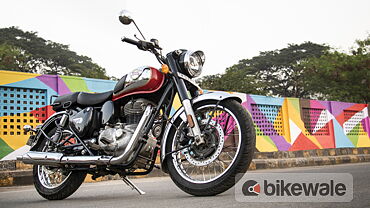


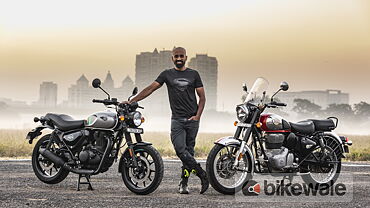
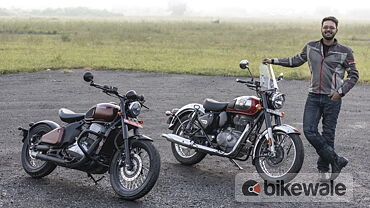


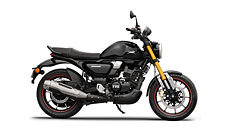
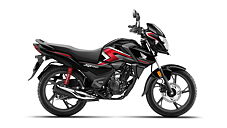
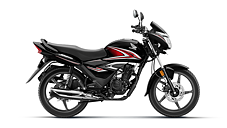

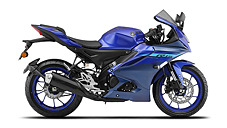
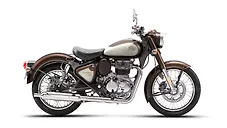
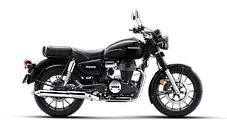
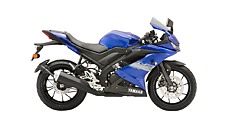
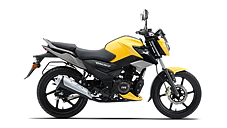
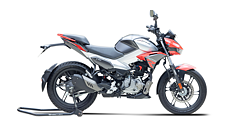
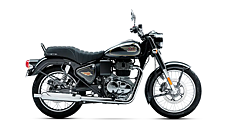
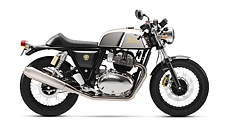
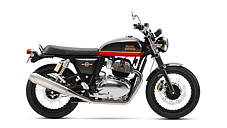
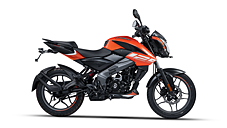






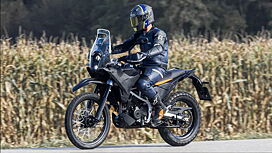
![KTM 390 Adventure X [2025] KTM 390 Adventure X [2025]](https://imgd.aeplcdn.com/272x153/n/cw/ec/190885/390-adventure-x-2025-right-side-view.jpeg?isig=0&q=80)